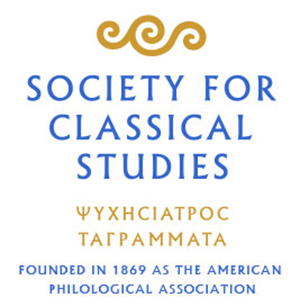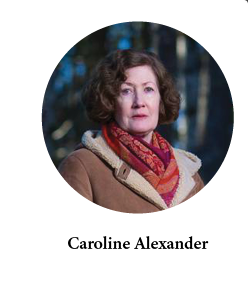With great sadness, the Department of Classics announces the passing of Professor Leonardo Tarán on February 18, 2022.
Professor Tarán was born on February 22, 1933 in Galarza, Argentina, into a family of Eastern European Jewish immigrants. He came to the United States in 1958, when he entered Princeton’s Ph.D. program in Classics. He was a member of the faculty of Columbia University’s Department of Classics from 1967 until his retirement in 2004.
The department extends condolences to Professor Tarán’s wife, Judit Sonya Lida-Tarán, his son, Gabriel Tarán, and the rest of his family.
We are very grateful to Dr. David J. Murphy, PhD 1986, for composing the following appreciation of his mentor’s career and accomplishments as a scholar, researcher, and role model.
After studying Classics on his own, and ancient philosophy under the guidance of Rodolfo Mondolfo in his native Argentina, Leonardo earned a law degree in Buenos Aires in 1958. His heart, however, was with ancient philosophy, and he earned his Ph.D. in Classics from Princeton in 1962. During post-doctoral fellowships at Wisconsin and at the Center for Hellenic Studies in Washington, Leonardo turned his dissertation into his first book, Parmenides. A Text with Translation, Commentary and Critical Essays, which Princeton University Press reprinted three times after its publication in 1965.
Leonardo’s dissertation sponsor was Harold Cherniss, then at the Institute of Advanced Studies in Princeton. Cherniss in turn had taken a seminar in Chicago with Paul Shorey and had imbibed much from Shorey’s writings about Plato. One can see in Leonardo’s work a continuity with the rigorously philological approaches of Shorey and Cherniss. Leonardo’s books and articles ranged over the whole span of ancient Greek philosophy from Heraclitus and Parmenides of the earlier fifth century BCE to the twilight of Neoplatonism in the sixth century CE. John Dillon called Leonardo “one of the chief authorities in the field” (rev. of Leonardo’s edition of and commentary on the Epinomis in AJP 101 [1980] 486‒8 at 486.) Jaap Mansfeld commented that “much is to be learned ... both as to contents and as to method” from Leonardo’s extensive review articles as well as from his other papers (rev. of Leonardo’s Collected Papers in Mnemosyne 57 [2004] 764‒5 at 764). Roger Bagnall told me that former Chair Walter Ludwig said in a departmental meeting that Leonardo’s Speusippus of Athens was the finest work of classical scholarship produced by a member of the department since Kurt von Fritz. In addition to his teaching and research, Leonardo benefited the profession by bringing out collections of philosophical papers by Cherniss and, with Garland Publishing, Inc., reprints of books and papers on ancient Greek and Roman philosophy and literature. Sadly, Leonardo was prevented from completing two major projects: a critical edition of Simplicius’s commentary on Aristotle’s Physics and a commentary on Aristotle’s Poetics as a work—the latter building on the critical edition with textual notes that he and Dimitri Gutas had brought out in 2012.
Those two projects show Leonardo’s conviction that despite centuries of production of editions of ancient Greek and Latin authors, many of their works still lack critical editions founded on scientific principles. Studying the history of transmission of a text, collating manuscripts that contain it, establishing their filiation so as to isolate the primary witnesses, and producing a text with critical apparatus showing all readings of primary witnesses were endeavors to which Leonardo devoted himself throughout his career. He was the first to publish Asclepius of Tralles’ Commentary to Nicomachus’ Introduction to Arithmetic (1969). At the opposite pole, Aristotle’s Poetics had been edited often. Leonardo and Gutas, however, put its text on a firm basis by making complete use of the medieval Arabic and (fragmentary) Syriac witnesses and William of Moerbeke’s Latin translation, and Leonardo proved the existence of an archetype from which all our extant witnesses are derived. Pierre Pellegrin praised the volume as “fondé sur une érudition éblouissante” (rev. in Revue Philosophique de la France et de l'Étranger, 205 (2015), 239‒241 at 240), and Omert J. Schrier called it “a landmark in the history of the Poetics” (rev. in Mnemosyne 69 [2016] 319‒36 at 335). Sometimes aspects of Leonardo’s writing provoked controversy. Now when fluency in ancient Greek is no longer assumed of readers of scholarship in Classics, Leonardo maintained the once-standard custom of providing no English translation of quotations in Greek. Some readers lacked patience for Leonardo’s comprehensive treatment of a question (“minutiae of scholarly controversy,” Jonathan Barnes, CR 27 [1977] 121). Yet, in this Leonardo was paralleling the stance of Cherniss, who would explicate why he rejected an interpretation on the grounds that “there can be no approach to common agreement on more general issues until scholars stop passing by in silence the discordant interpretations of specific passages...” (Aristotle’s Criticism of Plato and the Academy [1944] xxii). Leonardo’s care to eschew speculative conclusions sometimes was criticized (“pervasive scepticism,” John Dillon in his review of Speusippus in CR 33 [1983] 225‒7 at 225), but one must always do justice to Leonardo’s reasoning in particular cases. I mention one. Leonardo dismissed as “unworthy of what we know about Plato and Aristotle” the “undignified” story in Aelian (VH 3.19 = T34) that Aristotle and followers repeatedly badgered the aging Plato with elenctic questions, forcing him to stay indoors rather than walk in the garden, and that it took Xenocrates to deal with the situation after Speusippus did nothing. Dillon in a later article averred that “it is unreasonable of its latest commentator [sc. Leonardo] to dismiss [this story] as spurious,” since it could have been embellished from some grains of truth (“What Happened to Plato’s Garden?”, Hermathena 134 [1983] 51‒9 at 54). Professor Dillon, though, neglected to tell us that Leonardo had offered an argument: if this story is true, “it is hardly likely that Aristotle would still have been considered a member of the Academy at the time of Xenocrates’ election (cf. T2, lines 14‒27).”
Leonardo came to Columbia in 1967 after a year of teaching at UCLA in 1965‒66. Prior to and during his long tenure at Columbia, Leonardo received grants and fellowships from the American Philosophical Society, the American Council of Learned Societies, the Guggenheim Foundation, and the National Endowment for the Humanities. Leonardo was twice a Visiting Member at the Institute for Advanced Study (1966‒67, 1978‒79). Leonardo served the department as Chair and in later years at Director of Graduate Studies. To him the signal honor of the named chair, John Jay Professor of the Greek and Latin Languages, was awarded in 1987.
In my first two years in the graduate program of what was then called the Department of Greek and Latin, I had no course with Professor Tarán. But another graduate student advised me to seek him out as a prospective dissertation advisor. Professor Tarán, this student said, gives the most direct and best guidance.
When I met with Professor Tarán and spoke of my interest in specializing in Plato, he treated me to an hour’s survey of Plato’s work and career. I still picture myself sitting in front of Leonardo’s desk furiously taking notes as he told me of the Phaedo’s picture of reasoning by hypothesis toward “something sufficient,” ἱκανόν, and of the Republic’s picture after that of a “not-hypothesized first principle,” ἀνυπόθετος ἀρχή, that would account for reality.
There followed a seminar with Leonardo on Heraclitus and Parmenides and another on Euripides’ Bacchae. In each, after Leonardo gave a model presentation, we would try to do what he did in our presentations. He was an exacting critic; we strove to meet his standards. Later, when I was writing my dissertation, I profited from the same pedagogical modeling. Finding some of my footnotes too long and lacking structure, Leonardo rewrote two pages of them. That got me started on a much tighter, more focused product. I cannot begin to detail all the help, personal and institutional support, and encouragement he gave, or the many questions he patiently answered. Leonardo was supportive not only of his students but also of some younger colleagues going through difficult times.
As I wrote to Leonardo’s wife, Dr. Judit Sonya Lida-Tarán: “Leonardo made a big contribution to my life, and I owe him much. I appreciate how he taught and modeled concern for truth, discernment between what we can know and what we can only conjecture, indefatigable searching for direct evidence, and deep familiarity with other scholars' work. It is solely to Leonardo that I owe my rewarding experience of working on Greek manuscripts. Although most of my teaching was at the secondary level, I always found inspiration as a teacher in Leonardo's example of intellectual rigor and ‘the spirit of the hunt’.”
In Leonardo Classics, ancient philosophy, and the Columbia community have lost an esteemed colleague and teacher. I am grateful that Leonardo Tarán was my Doktorvater.
David J. Murphy, Ph.D. 1986
















